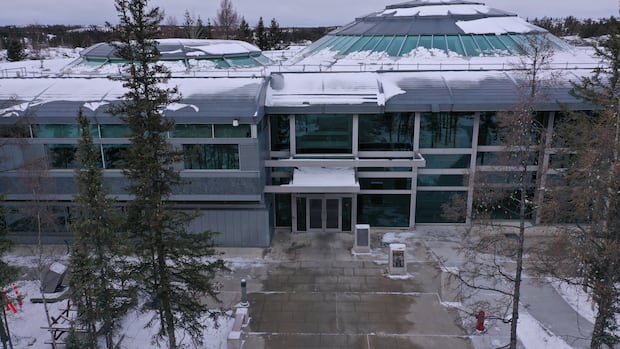Top Stories
Northwest Territories Unveils Controversial SCAN and Forfeiture Laws

UPDATE: The Northwest Territories is taking urgent action against rising drug-related crime with two newly proposed laws: the Civil Forfeiture Act and the Safer Communities and Neighbourhoods (SCAN) Act. However, these initiatives are drawing significant criticism for potential impacts on civil liberties as public consultations are underway until October 31, 2023.
With crime rates surging, the government claims these laws aim to bolster public safety. Yet, critics argue that the legislation could unfairly target vulnerable communities, particularly Indigenous and racialized populations. The proposed Civil Forfeiture Act would allow authorities to freeze and seize property suspected of being linked to crime, even without a criminal conviction—a move that has raised alarms among civil rights advocates.
Under the Civil Forfeiture Act, the government could seize assets such as homes, vehicles, and cash if deemed connected to illegal activities. Alarmingly, the process could bypass court approval in certain cases, raising questions about due process and fairness. Legal experts, including N.W.T. lawyer Melanie Begalka, have voiced concerns: “A lot of people can get hurt. They lose their homes, they lose their vehicles, they lose their businesses because of something peripheral.”
The SCAN Act would enable Justice Department officials to investigate homes based on confidential public complaints, potentially leading to tenant evictions. Current landlord-tenant rules would remain, prompting skepticism about the effectiveness of the new officers dedicated to these investigations. One Hay River resident, who chose to remain anonymous for safety reasons, criticized the SCAN initiative, questioning its effectiveness without substantial changes to existing rental laws.
Critics are particularly wary of the potential for misuse of these powers. Former MLA Michael Miltenberger expressed concerns that the SCAN officers might contribute to existing issues rather than resolve them, stating, “It sounds like they intend to create another arm of government that may or may not be uniformed.”
In contrast, Justice Minister Jay Macdonald defended the measures, asserting they are necessary tools for law enforcement to combat persistent crime. He stated, “This is a tool that’s in the toolbox for specific cases,” emphasizing the need for mechanisms to target the profits from criminal activities.
The government plans to allocate funds from civil forfeiture to support community programs and victim assistance. However, many residents remain unconvinced that these proposed laws will effectively address the root causes of crime. With public meetings ongoing and a decision expected soon, residents are urged to voice their opinions as the government pushes for a legislative vote before the end of the assembly.
As this situation develops, the implications of these laws could significantly alter the landscape of civil liberties and community safety in the Northwest Territories. The urgency for community feedback is palpable, with many residents feeling that their lives and livelihoods are at stake.
Stay tuned for updates as the Northwest Territories government navigates this contentious legislative path.
-

 Politics3 weeks ago
Politics3 weeks agoSecwepemc First Nation Seeks Aboriginal Title Over Kamloops Area
-

 World4 months ago
World4 months agoScientists Unearth Ancient Antarctic Ice to Unlock Climate Secrets
-

 Entertainment5 months ago
Entertainment5 months agoTrump and McCormick to Announce $70 Billion Energy Investments
-

 Lifestyle4 months ago
Lifestyle4 months agoTransLink Launches Food Truck Program to Boost Revenue in Vancouver
-

 Science5 months ago
Science5 months agoFour Astronauts Return to Earth After International Space Station Mission
-

 Technology3 months ago
Technology3 months agoApple Notes Enhances Functionality with Markdown Support in macOS 26
-

 Top Stories2 months ago
Top Stories2 months agoUrgent Update: Fatal Crash on Highway 99 Claims Life of Pitt Meadows Man
-

 Lifestyle3 months ago
Lifestyle3 months agoManitoba’s Burger Champion Shines Again Amid Dining Innovations
-

 Politics4 months ago
Politics4 months agoUkrainian Tennis Star Elina Svitolina Faces Death Threats Online
-

 Sports5 months ago
Sports5 months agoSearch Underway for Missing Hunter Amid Hokkaido Bear Emergency
-

 Politics4 months ago
Politics4 months agoCarney Engages First Nations Leaders at Development Law Summit
-

 Technology5 months ago
Technology5 months agoFrosthaven Launches Early Access on July 31, 2025





















